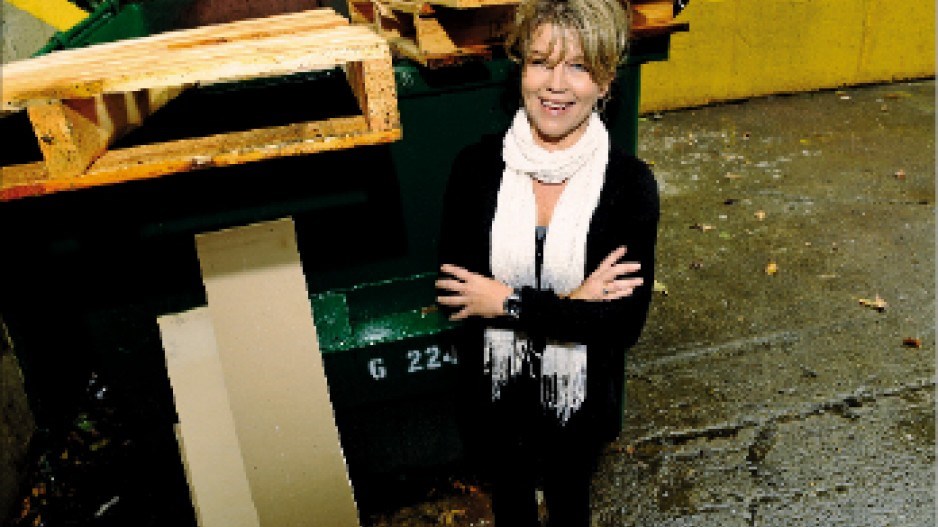Construction companies emerging from the Vancouver Regional Construction Association (VRCA) pilot program on sustainability are finding that adopting green practices in the office and on the construction site can lead to savings.
“You should become more profitable” said Susan Hildebrand, director of sustainable practices for Scott Construction, one of six companies completing the VRCA Excellence in Sustainable Construction (ESC) certification program in October. Hildebrand, who has 20 years of construction experience as well as LEED accreditation, said the program causes companies to examine resources used.
“I’ll go to a job site and see how much drinking water we are using,” said Hildebrand, adding she has seen crews using tap water to wash down concrete slabs.
“But, at the same time we are pumping out storm water.” Using storm water pooled at construction sites for non-potable water purposes makes good economic and environmental sense.
Hildebrand, working with a committee from the VRCA, wrote the program after she realized there was no certification process that construction companies could use. Individuals, buildings and even building materials could be certified indicating they met some standard of sustainability.
“There was really nothing for the companies that built the buildings,” she said, adding that many were already using some green practices.
The program uses a three-prong focus, looking at social, environmental and financial or economic sustainability. During the course, which formally launches in November, companies develop an overall corporate sustainability plan, which is submitted to the VRCA. Upon acceptance, a third-party audit is performed on the company to ensure that it is following its practices. If approved, it becomes certified.
Integral to the program is tracking the company’s footprint and what resources the company and its employees use. GobiSOFT, a software program for businesses, is used and focuses on the dual elements of waste and energy consumption.
Hildebrand says recycling materials has become standard at Scott jobs. On tight sites that can’t accommodate numerous bins, crews have found ways of layering materials so that non-recyclable materials can be disposed of while the remainder is recycled and over-all volume going to landfill is reduced with cost-savings on tipping fees realized.
Scott is also deploying employees to job sites closest to their homes where possible to minimize their travel impact on the environment. The ESC program, says Hildebrand, is really about creating a “bottom-up and top-down” environment, where employees are helping.
“Some of the best ideas come from the employees,” she said, adding that today’s younger construction workers actually want to work for a company with a sustainability policy in place.
“Going green doesn’t have to cost more,” agreed Trevor Massey, project manager at Lark Projects Ltd., another company going through the ESC pilot program.
Lark is currently building a mixed-use, strata in Surrey with the top floor as its offices. The green roof will be used by employees as a community garden. Not only is there a social value in providing a common garden where employees can grow their vegetables, but the economic benefit is that Lark will not have to buy and maintain the green plants normally found on a green roof, Massey says.
Lark has struck its own employee green committee to look at best practices. The GobiSOFT program will provide the data for annual comparisons that can pace the company’s progress, said Massey.
Lark entered into the VRCA program because it already had some sustainability measures in place but wanted to expand its efforts. Massey says the course has been a learning experience as companies have been able to share best practices, foster mentoring relationships and participate in training sessions to develop a sustainability plan.
Hildebrand says entrants into the course on average will take up to a year to get certified, although companies with existing sustainability practices can go through faster as they are in a better position to write a comprehensive plan for the VRCA committee. The program is open to VRCA members who are contractors, sub-trades or suppliers.
VRCA associate director of education Lisa Wolfe says that eventually the association hopes those companies with ESC certification will be recognized by municipalities and developers. “They would be seen as a preferred company to deal with and they are meeting standards around sustained practices.” •




